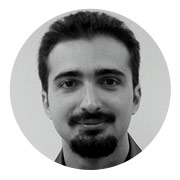The Emerging Paradigm of the Social Internet of Things
All market and technology studies forecast an explosive growth in the number of things which will be connected to the Internet. The resulting network is what is commonly known as the 'Internet of Things' (IoT). The IoT poses completely new challenges when compared to the traditional Internet which cannot be faced if the involved objects are just traditional smart objects. In fact, the extremely high complexity (huge number of nodes, extreme heterogeneity of their resources and capabilities, uncertainty on their trustworthiness, etc.) of the IoT environment cannot be faced by even very smart objects singularly. Social behavior is the answer to face the complexity of the surrounding environment. Accordingly, the concept of Social Internet of Things (SIoT) has been recently introduced and is the subject of a rapidly increasing research effort. The main objective is giving social-like capabilities to the objects in the Internet of Things and design conceptual (and software) platforms, which can be exploited to easily develop and implement complex applications that require direct interactions among objects. In this course we will provide an introduction to this paradigm, discuss related basic concepts, survey the existing literature and projects, and describe a specific solution in details by providing some example applications.
What you will learn:
- Explain basic concepts of the Social Internet of Things (SIoT) model
- Describe how the SIoT model model enhances users' experience
This course is part of the following course program:
IEEE Guide to the Internet of Things
Courses included in this program:
Who should attend: Electrical engineer, Design engineer, communications, Systems engineer, Product engineer, Computer engineer, Software engineer, Lead engineer, Project engineer, QA/quality engineer
Instructor
Antonio Iera

Antonio Iera graduated in Computer Engineering at the University of Calabria, Italy, in 1991 and received a Master Diploma in Information Technology from CEFRIEL/Politecnico di Milano, Italy, in 1992 and a PhD from the University of Calabria, Italy, in 1996. From 1994 to 1995 he was with Siemens AG - Munich, Germany and since 1997 with the University Mediterranea, Reggio Calabria.
Giacomo Morabito

Giacomo Morabito received a laurea degree in Electrical Engineering in 1996 and a PhD in Electrical, Computer and Telecommunications Engineering from the University of Catania, Catania (Italy) in 2000. From November 1999 to April 2001, he was with the Broadband and Wireless Networking Laboratory of the Georgia Institute of Technology as a Research Engineer. Since April 2001 he has been with the University of Catania where he is currently Associate Professor.
Luigi Atzori

Luigi Atzori is associate professor at the University of Cagliari (Italy). His main research topics of interest are in service management in next generation networks, with particular attention to architectural solutions for the Internet of Things, QoS, service-oriented networking, bandwidth management and multimedia networking. He has published more than 100 journal articles and refereed conference papers.
Publication Year: 2016
ISBN: 978-1-5090-0516-1